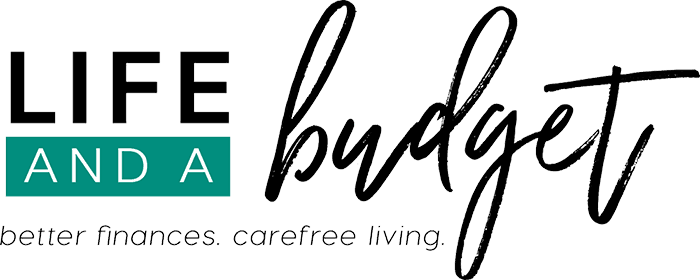Budget Management – Today we’re going to go over a few tips to improve your budget once you have it set up! If you’ve been following The Ultimate Budgeting Series, we’ve already gathered your income, tracked your expenses, created a savings plan, and built your budget. Now, it’s time to maximize your new budget management skills. To read the entire series from beginning, start here.
The hard part is over!
If you’ve been following along in this series, we’ve already tracked your income and expenses. You have a plan for savings and you’ve built that budget you’ve been avoiding.
Now it’s time to fine-tune your budget. You will need to get some practices in place so your budget will continue working for you.
These tips are simple ways to make sure your budget doesn’t fail. They will also help you to adapt to anything life throws at you. Let’s get right into it!

Continue Tracking Your Expenses
You can continue to do this manually or you can use a budgeting system that does it automatically. There are trackers like Personal Capital, Mint, YNAB, etc.
I use YNAB. What I love about it is that it will automatically do this for me. Any accounts I have set up in the budget software, the transactions will automatically pull. Once a week I will go into YNAB and there may be a few that need to be approved.
Keep your expense tracking simple. If a notebook and pen works best for you, do it. Just make sure to keep your receipts in case you forget to track an expense.
It’s extremely important to continue making sure that your current budget reflects your spending. The only way to do this is to stay on top of your expenses!
Review and Update Your Budget
Set aside time to review your budget at least once a month. Sometimes I may need to check in weekly, depending on what’s going on.
When you are tracking your expenses, take note of any additional expenses that come up.
For example, if you are spending more money going out to eat, and less at the grocery store — maybe, it’s time to update your budget to reflect your current spending habits.
Just increase the category you’re overspending in. Another option would be to reduce expenses elsewhere.
For example, if you’re overspending on groceries, look at another category to see if you can budget less there. When you struggle in particular category, compensate by moving money from a category where you always have money left over.
Understand this, though — just because you update your budget doesn’t mean you suck at budgeting!
Budgets are not set in stone. This is a common misconception. Your budget is a spending plan that can be changed at any point. Your budget works for you, not the other way around!
Reward Yourself
I’ve saved the best for last! The key to a successful budget is to reward yourself! Budgets are not about deprivation. It’s okay to want things. What isn’t okay is to get everything you want without having a plan to get it.
Your budget is your plan. If you’ve been working it and you consistently have money left over, reward yourself!
Yeah, you could throw it at debt. If that’s what you want to consider rewarding yourself, that’s fine and dandy. It’s up to you to decide (no judgment!)
Or if you want to take any extra money you have and take a weekend trip with your spouse, that’s okay too!
Rewarding yourself isn’t reserved to debt-repayment or purchasing things either. You can save it! Heck, that’s a good reward!
Whatever you decide to do, do it without guilt. Reward yourself and love every minute of being in control of your finances.
Your Next Steps
- Grab a copy of the monthly budget workbook for this series if you haven’t already.
- Purchase or find a folder, a file box (here’s a decorative one…I have a teal metal one that matches my kitchen. Something like this would work too), and file folders.
- Next, we will set up a household finance management system.
- Be prepared to organize your bills, account information, and financial goals.
Do you feel like you can successfully conquer budgeting now? Do you have any additional questions about budget management?




